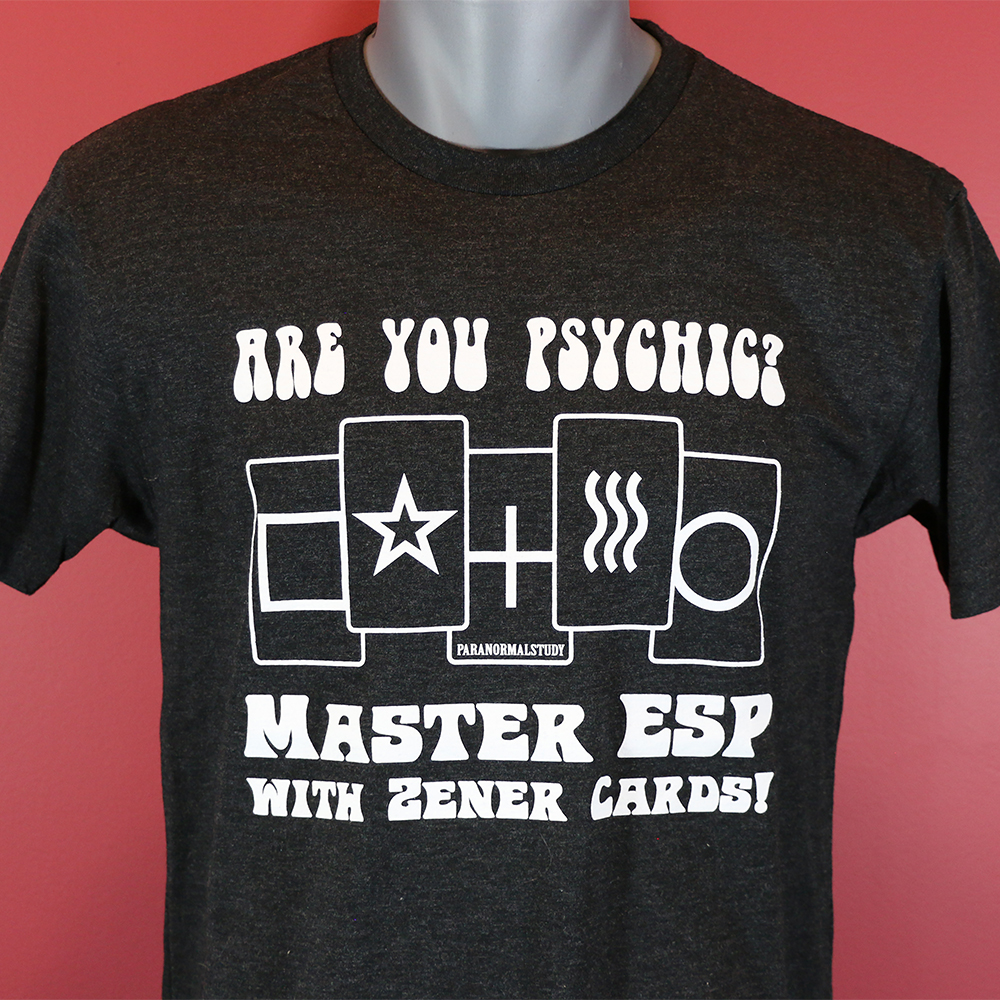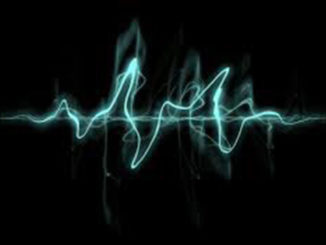
Highly Sensitive Person or Empathic?
Note: In today’s paranormal culture, many persons proclaim to be empaths. It is a buzzword that I’m sure you’ve heard being bandied about. This article came across my feed the other day and I found it fascinating because I have certainly heard of empaths and I know many people who truly are empaths, but yet I had never heard of the term HSP – Highly Sensitive Person. Paranormal Study is about learning, so if you have never heard about HSP’s, then please read this article. The article is republished here, in full, and the original can be found on Chakra Center’s website.
Empaths vs. HSP (They’re Not the Same Thing)
The term empath and “highly sensitive person” often get lumped together, but they are not the same thing..
Most experts agree all empaths are highly sensitive, but not all highly sensitive people are empaths. Here’s the distinction:
A HSP is sensitive and primarily reactive to the energy around them. Dr. Elaine Aron, the originator of the term, defines it this way:
“A Highly Sensitive Person (HSP) has a sensitive nervous system, is aware of subtleties in his/her surroundings, and is more easily overwhelmed when in a highly stimulating environment.”
While all empaths are highly sensitive to energy, the difference is in their ability to feel and perceive another person’s actual feelings. Empaths, therefore, are more extrasensory and possess at least one significant gift for directly experiencing what it is like to be in the emotional/mental/or physical body of another– literally feeling what the other is experiencing.
This is not to be confused with basic empathy. All humans have the ability to empathize (minus sociopaths, which is an inability to comprehend another’s emotions). Example: If a friend looses their child, most humans have the ability to empathize with the tragedy, even if they themselves have never experienced a significant loss. An empath, on the other hand, might literally feel what the friend is going through in their body – the anxiety, sadness, and emotional pain mimicking in the empaths system as if they themselves were directly experiencing the loss. If the friend has a headache from crying, the empath may develop a headache as well.
See the difference?
A highly sensitive person, on the other hand, may cry and feel overwhelmed by the idea of losing a child – but due to their sensitive nervous systems, a HSP (especially if they have unhealed emotional wounds from childhood) may go into a downward spiral, taking the friend’s tragedy and making it about them “I don’t want to live in this world anymore, it’s too hard.” At this point they are not in the friend’s emotional experience, but simply using the friend’s loss as an excuse to feel their own pain.
I’m not suggesting that all HSP misappropriate emotions, but MANY do. A HSP may be triggered by the energy around them, but from that point they remain in their own emotional body/nervous system, experiencing the world through the lens of their intensely emotional and reactive world. Because of this, HSP are often lost in how they feel, unable to have a direct experience of another person’s literal experience.
Both empaths and HSP often have a difficult time dealing with emotions, and having a highly sensitive nature does not automatically make us a saint (I’m going to talk about the dark side of empathic abilities in another article but for now, I want to focus on the dark side of HSP).
Because HSP are highly reactive to energy, they often project their extreme sensitivity onto others, assuming others feel what they themselves are merely projecting. Meanwhile, as they remain consumed by their emotionally reactive state, they often entirely miss what the other is feeling. They won’t even realize they’ve changed the focus to themselves and will often think they are simply validating the other person, when in reality, they are lost in their own reaction – incapable of even noticing they have changed the subject.

T-Shirts, Mugs and More!
We now have t-shirts, tarot decks, ESP cards, coffee mugs, face masks, and much more merchandise available for purchase. Every dollar spent helps fund Paranormal Study!
In my experience, HSP actually have a difficult time reading other people’s emotions accurately. While they are highly attuned to subtle energy (maybe picking up from body movement that a person is uncomfortable or upset) they will often piece together a story in their head about WHY the person is acting the way they are, usually based on their own emotional state in the moment. Because they are highly sensitive/reactive, HSP often make huge assumptions about what other people feel, when in actuality, they’re merely projecting their own fears and insecurities.
Where empaths typically have a difficult time accessing how they themselves feel (due to being lost in other people’s energy/emotions), an unhealed/unskilled HSP is nearly incapable of separating their own emotions/sensitivities from others, especially if they are in an emotional trigger.
It is especially difficult for a HSP person to realize the extreme level to which they project if they THINK they are empathic. In fact, one of the worst combinations (in my experience) is when an unhealed/unskilled HSP believes they are empathic. Now their projection/misapplication of emotions is fueled with a belief that they are, in fact, accurate in their assumptions and even possess some special, extra sensory gift.
Aye, yi, yi.
I’m not suggesting empaths don’t project. We all project to an extent, especially when we’re triggered or insecure. But for HSP, projecting often becomes the main modality for protecting themselves from the world. If they can place the cause of their highly reactive natures “out there” somewhere, they feel less overwhelmed (it also keeps them from having to take responsibility for their own emotions/projections).
For the sake of our mental and emotional health, it is crucial we not only understand the difference between HSP and empaths, but properly identify where we are on the spectrum. As noted above, all empaths are highly sensitive in nature, so they may slip into reactive tendencies like projecting. But usually an empath has the opposite problem – rather than projecting their emotions out, they draw other people’s emotions in (and get lost in the process).
For an empath, an unhealed/unskilled HSP is often the most draining type of person to be around. The strong emotional projection and reactive nature of the HSP triggers an empath’s negative tendency to feel they must take care of the other person’s emotions. In fact, relationships between HSP and empaths can be the most co-dependent (if both parties are not skilled in dealing with their sensitivities), with the HSP constantly needing the empath to validate their intensely sensitive natures, and the empath feeling responsible for HSP feelings.
When an empath does take time away from the HSP (or begins to have boundaries), the unskilled HSP will take the action extremely personal, interpreting the act to be directly against them and often behaving in passive aggressive ways toward the empath. Because HSP reactions are so emotionally intense, the empath often feels the energetic aggression as psychic attack.
An empath, when feeling the energy of another, literally feels what the other feels (rather than simply noticing social dynamics, energy, or subtle body movements), so shaking off the negative projection of a HSP can be especially difficult for an empath.
While an HSP can be kind and compassionate, their emotional stance and energy is typically on the defense (self-protective mode), so if the person they are attempting to “help” says or does something that triggers them, they are unable to stay (empathically) with the other, and instead launch into their own emotional body/wounds/and triggers. In my experience, this is the KEY difference between empaths and HSP.
If you constantly feel hurt and offended by other people and take make their energy/decisions/words personal (to the point where it affects your mental/emotional peace) chances are you are a HSP.
The trick for a HSP is not to put a personal story to every movement in the world around you. It’s important to learn not only to deescalate reactions and validate how you feel, but also release the storyline/meaning you give the experience. It’s the interpretation we give the energy that is painful, not the energy itself.
For empaths, the challenge is separating ourselves from other people’s emotions long enough to recognize our own. This is especially important when dealing with HSP. Sometimes the boundary line between empaths and HSP need to be even stronger than other relationships, simply because of the tendency to trigger each other’s negative traits.
It’s important to clarify: ALL EMPATHS ARE HIGHLY SENSITIVE (HSE), but not all HSP are empaths. The difference is in the primary way of processing energy. An empath has the ability to literally feel what another person is feeling (sometimes it’s emotionally, or it shows up physically — you get a headache when someone walks in the room who a head ache — that sort of thing).
Empathic abilities are extrasensory in nature. While an HSP has a sensitive central nervous system, it ‘s not necessarily extrasensory perception. Someone who is HSP (not HSE), is extremely sensitive to the energy around them, but typically is not able to completely connect to what another is literally/actually feeling because their own reactive/sensitive nature is what they primarily experience. An HSP may be able to feel and recognize when another person is upset, but they can’t literally feel what the other is feeling. It’s not that specific. In other words, their own sensitives are what they are feeling, NOT ANOTHER PERSONS.
Before you assume you’re an empath, access your emotional reaction to the world around you, first. I personally feel some of the healing/thriving techniques for empaths are not only inappropriate for HSP, but will actually exacerbate their tendency to project.
Learn what you’re dealing with, then gather the information that will best help you move forward from there.
Peace out.
If you found the content in this article to be of any value to your paranormal studies, please let us know in the comments below. Feel free to share this article with your friends as well because if you found it interesting, they might too.
Do You Want To Know More?
Our content creators also have podcasts that go much deeper into paranormal topics.
Tim Woolworth’s Walk in the Shadows, an episodic masterclass that consists of a deep dive into all things Fortean, paranormal and supernatural.
Rick Hale teams up with Stephen Lancaster in The Shadow Initiative where they explore various paranormal topics and discuss current paranormal news.
Please check these shows out and visit Paranormal Study social media to keep up to date on articles and all the things our authors are doing.




Well Tim Woolworth, what an interesting story that came out of you. You say you had never heard of the term HSP, yet you say “in my experience” twice. Also you call HSP’s unhealed/unskilled twice. You either don’t know them at all or some HSP’er got to you and you took the opportunity to write an article about this to vent and send a message. How interesting this story full of contradictions. By the way: I am not one of the offended ones, just a critical reader…
As a critical reader, you should have realized that the first paragraph is an introduction to an article we did not write, but rather republished to educate people on this very topic.
I found this to be very informative. It really made me think hard about things I have seen and felt in the past. I will also use this in my critical thinking in the future.